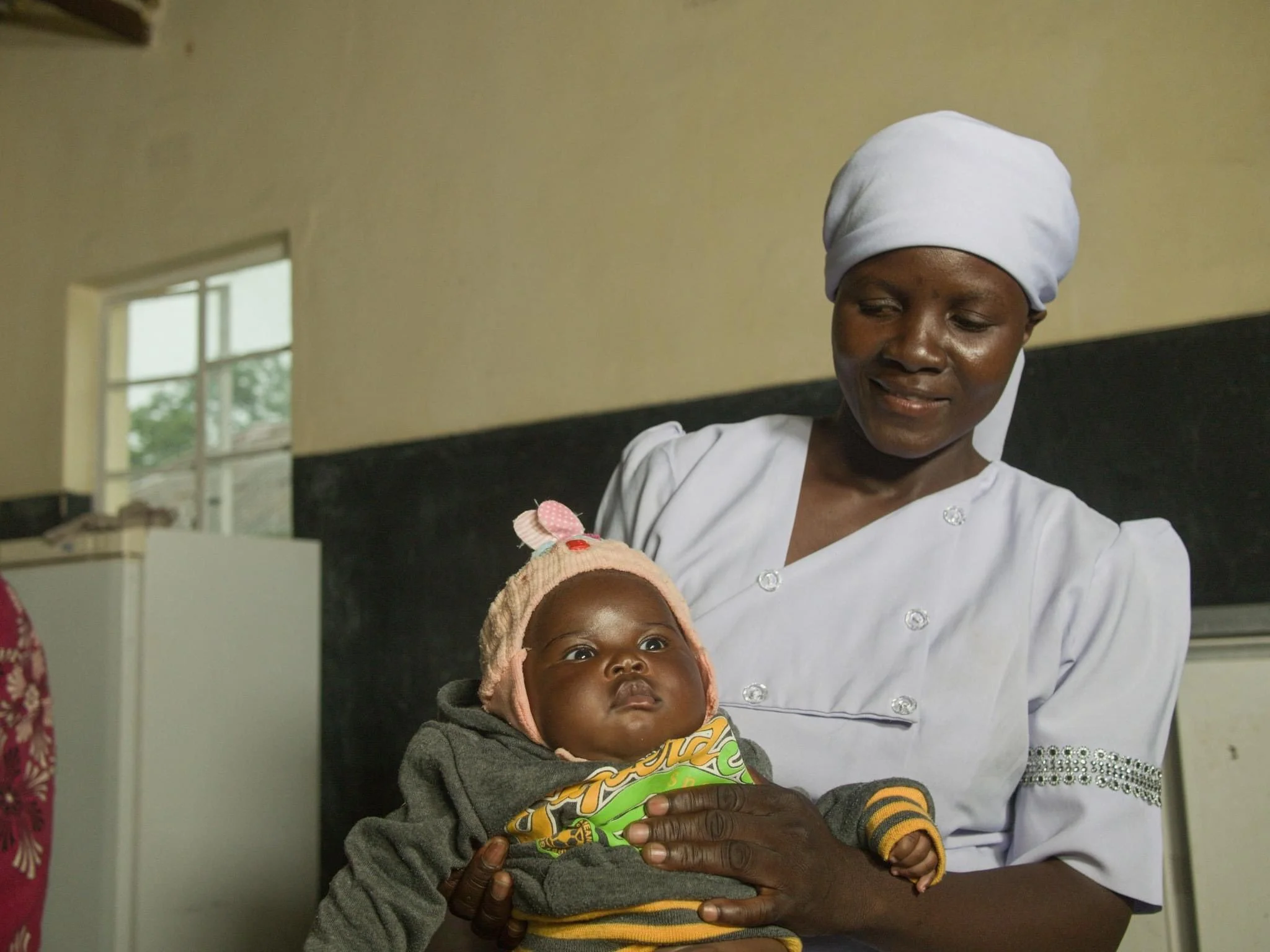258,161*
confirmed global
jobs lost.
23,053*
confirmed American
jobs lost.
*As of January 13, 2026, these data represent confirmed layoffs and furloughs attributed to the USAID funding freeze, as reported by 183 organizations. American job losses are tracked separately and are not included in the global job loss total.
In early 2025, the USAID Stop-Work Order abruptly halted over 80% of U.S.–funded global health and development programs, immediately cutting off life-saving medicines, medical care, food assistance, and humanitarian supplies for millions of people.
Clinics closed mid-treatment. Supply chains stopped in transit. Essential services vanished overnight.
This sudden shutdown was then compounded by massive job losses—more than 20,000 American workers and over 200,000 global staff were laid off or left unpaid, pushing families into crisis during an already severe affordability crunch. Rent, groceries, childcare, and health insurance costs didn’t pause—only the paychecks did.
This is not just a humanitarian failure abroad. It is a cascading crisis.
USAID’S Impact on America
Foreign aid is not just charity—it’s an investment in stability, diplomacy, and American interests. When we abandon these commitments, we make our country more vulnerable. We must take action now to reverse this devastating order. Below are talking points to help you when you contact your members of Congress.
Food Security
USAID plays a vital role in global food security by partnering with American farmers, agribusinesses, and research institutions to combat hunger and malnutrition worldwide. Through initiatives like Feed the Future, USAID supports the development of climate-smart agriculture, improved seeds, and modern farming techniques, helping smallholder farmers increase their productivity and resilience. By leveraging the expertise and surplus production of American farmers, USAID delivers nutritious food aid to communities in crisis while also strengthening local food systems to prevent future shortages. These efforts not only save lives but also create new markets for U.S. agricultural products, fostering economic growth both at home and abroad. Through this partnership, USAID and American farmers work together to ensure that families everywhere have access to safe, nutritious food.
Disease Prevention
USAID plays a critical role in preventing the spread of deadly diseases to the United States by strengthening global health systems and stopping outbreaks at their source. Through investments in disease surveillance, vaccination campaigns, and emergency response programs, USAID helps detect and contain emerging health threats before they become global pandemics. By supporting frontline healthcare workers, funding research on infectious diseases, and improving access to medical supplies, USAID ensures that countries around the world are better equipped to manage outbreaks of diseases like Ebola, Zika, tuberculosis, and avian influenza. These efforts not only save lives abroad but also protect Americans by reducing the risk of dangerous pathogens reaching U.S. borders. Cutting these programs would leave both the U.S. and the world more vulnerable to future health crises, making prevention a cost-effective and essential national security investment.
Counter Terrorism
USAID plays a crucial role in counterterrorism efforts by addressing the root causes of extremism through stabilization, governance, and economic development programs. By investing in education, job creation, and community resilience, USAID helps prevent vulnerable populations from being recruited by terrorist organizations. The agency also works with local governments to strengthen rule of law, anti-corruption measures, and security sector reforms, making societies more resistant to extremist influence. Additionally, USAID funds de-radicalization programs, supports victims of terrorism, and provides humanitarian aid in conflict zones, reducing the desperation that extremist groups exploit. These efforts are essential to promoting long-term peace and security worldwide.
Counter Migration
USAID helps address the root causes of forced migration by promoting economic stability, governance, and security in countries where people are often forced to flee. Through investments in job creation, education, and vocational training, USAID provides individuals with better opportunities at home, reducing the need for dangerous migration journeys. The agency also strengthens governance and anti-corruption measures, ensuring people can trust their governments to provide basic services and protect their rights. Additionally, USAID supports humanitarian aid, crisis response, and conflict prevention programs to stabilize regions affected by violence, poverty, and natural disasters—major drivers of forced migration. By tackling these challenges at their source, USAID helps create conditions where people can build a future in their own communities rather than being forced to leave.
Counter Narcotics
USAID plays a key role in counter-narcotics efforts by addressing the economic and social conditions that fuel drug production and trafficking. The agency works with local governments and communities to promote alternative livelihoods, helping farmers transition from illicit drug crops—such as coca—to legal, sustainable agriculture—such as coffee. USAID also strengthens governance, law enforcement, and anti-corruption initiatives to disrupt drug trade networks and reduce the influence of organized crime. Additionally, the agency funds public health programs to combat substance abuse and addiction, as well as education and economic development initiatives that provide at-risk youth with better opportunities, steering them away from the drug trade. These comprehensive efforts help reduce both the supply of and demand for illegal drugs, contributing to global security and stability.
President’s Emergency Plan for AIDS Relief (PEPFAR)
PEPFAR is one of the most successful global health initiatives in history, having saved over 25 million lives since its launch in 2003. This U.S.-led program has provided life-saving antiretroviral treatment, prevention services, and critical healthcare infrastructure in more than 50 countries, dramatically reducing HIV/AIDS-related deaths and new infections. PEPFAR not only delivers essential medications but also strengthens local healthcare systems, ensuring long-term sustainability in the fight against HIV/AIDS. By prioritizing equity, innovation, and partnerships, PEPFAR has helped prevent millions of mother-to-child transmissions, supported millions of orphans and vulnerable children, and built a foundation for global health security. Cutting or weakening this program would have devastating consequences, reversing decades of progress and putting millions of lives at risk.




















